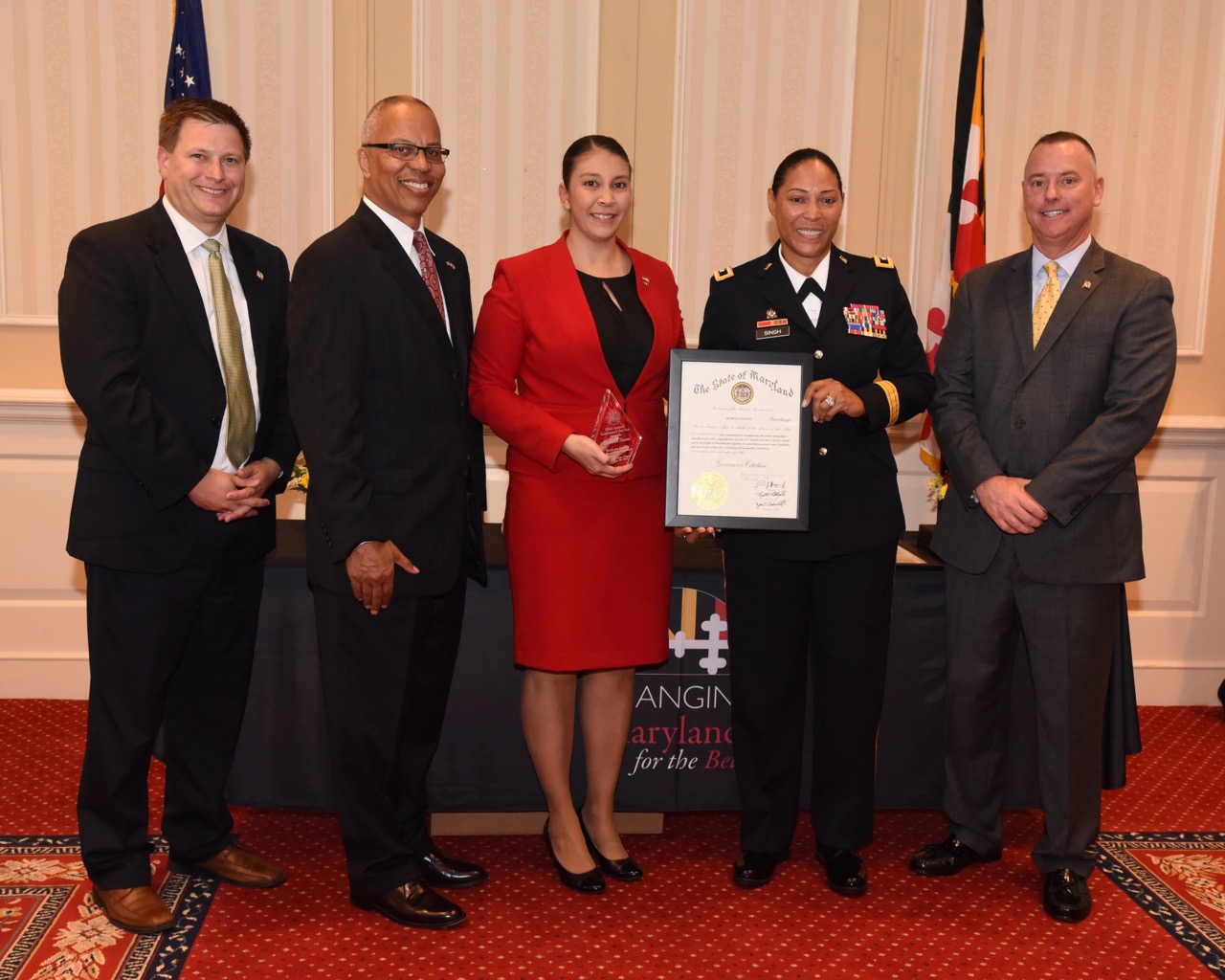A University of Maryland graduate student won the first Veteran Governor’s Service Award on Oct. 20 for her volunteer experience and her service in the U.S. Army.
The Governor’s Service Awards, which were presented in Annapolis in the Miller Senate Office Building, are presented every year to “recognize Maryland citizens for their significant volunteer contributions to the state and its people, and for working to change Maryland for the better,” according to the state’s website.
Rebecca Stone, a first-year information studies graduate student, is an 11-year veteran and wounded warrior who served during the Iraq War. Over the past few years, she has logged more than 2,300 hours of community service for 18 different organizations, according to Katie Kuehn, spokeswoman for the Governor’s Office of Community Initiatives.
Stone was selected from a pool of 16 nominees for her “sheer number of hours” of volunteer work and for her patriotism, said Jeffrey Griffin, the director of the Governor’s Office on Service and Volunteerism.
“These are people who give back already [in their jobs] and we know that so many of them give back outside of their work hours,” Griffin said. “We just want to say thank you to recognize them for what they do.”
Other new award categories this year included state employee and first responder.
While Stone volunteers for many different organizations, she has concentrated on youth groups and providing children with new cultural experiences. For example, Stone said joining Big Brothers Big Sisters of America was one of her most “memorable” experiences because she had the opportunity to mentor a young girl by taking her to cultural events to expose her to the arts and sciences.
Stone has continued this type of work for the Boy Scouts and Girl Scouts, concentrating on Native American heritage. She is also a member of the Chickasaw Nation of Oklahoma, sits on the Maryland Commission on Indian Affairs and serves as the chair of its Mental Health Committee.
Her diverse volunteering experience has helped her gain a “wealth of knowledge on all kinds of cultures and experiences,” she said.
Using this unique knowledge she learned while volunteering and in the Army, Stone said she wants to help companies make software and hardware that consider different groups’ cultural backgrounds in their design.
For example, when video game companies release games overseas or target different demographics, sometimes they fail to consider that certain colors and symbols in the game hold different meanings elsewhere, which may deter someone from buying the game. To repackage or redesign the game after it has already been launched can be costly and time-consuming, which is why Stone said it would be better for companies to build their products around audiences’ cultures.
“The goal is that you don’t have to rewrite a lot of code,” Stone said. “If you have that initiative up front … you build a better product for your business, but you also really serve that end user.”
Stone is developing this idea for her master’s thesis while she continues to rack up more volunteer hours, adding that the “awesome time management skills” she learned as a Girl Scout help her fit everything in her schedule.
“I never thought my volunteer service would lead to [my thesis idea and future career plans], but it has,” Stone said. “I hope to take the knowledge over the many years of service I’ve had and to apply that to the commercial sector. I think it would be very beneficial to the whole world.”



